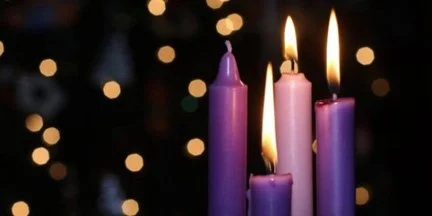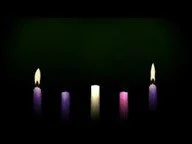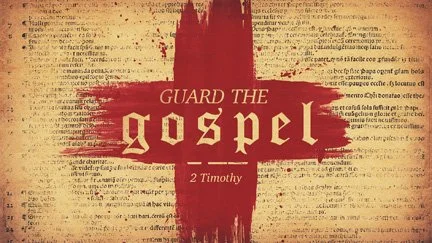Exodus 14:19-31
I don’t envy Moses his job. It had to have been worse than any ministry position I can think of. When he went home at night, he was still surrounded by the people he had to work with all day long, and their complaints and criticisms and petty feuds, which they expected him to solve in short order.
In his book, Peculiar Treasures: A Biblical Who’s Who, Frederick Buechner gives this account of the life of Moses:
Whenever Hollywood cranks out a movie about him, they always give the part to somebody like Charlton Heston with some fake whiskers glued on. The truth of it is he probably looked a lot more like Tevye the milkman after ten rounds with Mohammed Ali. Forty years of tramping around the wilderness with the Israelites was enough to take it out of anybody. When they weren’t raising [cain] about running out of food, they were raising it about running out of water. They were always hankering after the fleshpots of Egypt and making bitter remarks about how they should have stayed home and let well enough alone. As soon as his back was turned, they started whooping it up around the Golden Calf, and when somebody stood up and said he ought to be thrown out, the motion was seconded by thousands. Any spare time he had left after taking care of things like that he spent trying to persuade God not to wipe them out altogether as they deserved.
One of my favorite comic strips is “B.C.” The cartoonist is apparently a Christian and often makes obvious references to his faith. I have clipped and saved many of his strips, and one of my favorites shows a man looking up at the sky, saying, “Lord, if you’re up there, give me a sign.” In the next frame is a large neon sign stuck into the ground by his feet, with the words, “I’m here.”
If you want to learn about signs from God, the book of Exodus with its story of Moses is a good place to start. First, God had to come up with enough signs to convince Moses to get with the program and go back to Egypt to confront Pharaoh and set the Hebrew slaves free. Then, God had to figure out more signs to convince the Hebrews that Moses really had been sent by God to help them get free. And then God had to come up with a whole slew of signs, what we call the plagues, to convince Pharaoh that he meant business and to let the people go right now! Then God had to come up with even more signs to prove to his wandering children that he hadn’t forgotten them, that he still expected obedience on their part, and that he would sooner or later bring them into the land flowing with milk and honey.
God gave signs so that the people would know that he is God. So that the Egyptians would know that God was the Lord. But also, so that the Israelites would know. You would think that they would have already known that God was the Lord. They had been worshiping him for centuries now. And maybe they did know God. But maybe some of them didn’t know God well enough. Their faith tended to fall apart at the first sign of trouble or the least bit of inconvenience. Every time he turned around, Moses was stuck listening to complaints about the living conditions on their journey to freedom in the Promised Land. More than once these people even had the nerve to say that they wished they were still in Egypt slaving over those brick-ovens instead of being free out in the middle of nowhere on their way to a place they’d never seen. I think they needed to know – again – that God was the Lord.
Enter Pharoah and his army.
Apparently, the shock of losing his firstborn in the final plague had worn off enough for Pharaoh to realize that he’d just sent most of his labor force on their way to Palestine. They had wasted no time; they made it out of Dodge as fast as they could go and still carry all that good Egyptian plunder with them. Maybe Pharaoh sought the return of his work force. Maybe he sought revenge. But in any case, he set out after them with his chariots. His timing was uncanny. When he caught up with those Hebrews, they were trapped with the Red Sea at their backs. Things couldn’t have worked out any better for Pharaoh or any worse for Moses.
As soon as those Hebrews saw the army lined up against them, they lit into Moses again. “Did you think there weren’t enough graves in Egypt to go around? Did we need to come way out here to find a burial place? It’s all your fault that we’re in this mess! You brought us out of Egypt. You didn’t listen when we told you to leave us alone. You led us out here into the desert to die. We hope you’re satisfied!” It’s amazing, isn’t it? In spite of all they’d seen and heard, in spite of all that God had done to protect them and provide for them, these people still didn’t have faith that God would save them.
But lest we get too smug, lest we become too judgmental, we’d better stop for a minute and think about this. We’d better remind ourselves how easy it is to forget God’s goodness and generosity when we’re at a dead end with no way out. No matter how much we have experienced God’s love and power and mercy, when we come up against a threatening situation that we’ve never had to deal with before, we feel that nagging doubt in the back of our minds – will God save us? Is there a way out? We’ve all been there, trapped between the devil and the deep blue sea. And we haven’t always dealt with it any better than those Israelites in ancient history.
I have to admit it: the only way I can imagine this next scene is in Cecil B. DeMille style, with, yes, Charlton Heston in the starring role as Moses. I can hear the impressive movie-version of holy music. I can see the pillar of cloud between the Hebrews and the Egyptians. Even though I know what happens, I am still amazed when that sea parts straight across, with walls of water towering on either side. And then, all of those people walking between the water to the other side. I almost drowned once, and I have to wonder if any of those people hesitated to go down into that passage surrounded by water. I may have. But they all made it safe and sound to the other side. It was a miracle. And it reminds us of what God will do to save his people.
When the Hebrews were all safe and sound on dry ground on the other side of the Sea, the Egyptians who had followed them down between the walls of water were drowned as the water came back down into place. And as the people of Israel stood there on the far side of a sea that was supposedly impossible to cross, watching their enemies swept away, I’d like to think that God had gotten their attention. Maybe they were finally beginning to catch on that God was more than they had imagined him to be. It says that when the Israelites saw the great power that God displayed against the Egyptians, they feared the Lord and put their trust in him and in Moses. Sounds like success, at least temporarily.
What about you? Do you know – really know – that God is the Lord? Do you really, really believe? Do you need a sign? Do you want a reminder? Signs can sometimes come in unexpected ways, from unexpected people.
In January of 1995, my mother was scheduled for her fourth surgery in five years as she battled cancer. Her doctors believed that there was some kind of intestinal blockage that was making it impossible for her to keep down any food. We were told that she might not make it through the surgery; we were also told that she definitely wouldn’t make it if she didn’t have the surgery. Not much of a choice. She was on the operating table for over eight hours. Because of all the scar tissue and radiation damage, it had taken the surgeon five hours just to get to the site of her problem. It turned out that there was a small tumor pressing up against the outside of her intestine, pinching it off. The surgeon was able to remove it and correct the problem. The next year – her last year – was the best she’d had since the cancer had been diagnosed. It was a gift, a miracle. Some of our best and happiest memories are from that year.
In the days after the surgery, my mother’s oncologist told us that almost any other surgeon he knew would have looked at how much that surgery would involve and just closed her back up. And the only surgeon he knew who had the capability to do such meticulous work was the one she’d had. A couple of days later, when the surgeon came by to check on my mom, she took his hand and thanked him for what he’d done. He blushed a little, and then he said, “It wasn’t me. It was God using my hands.” I want to tell you that everyone in that room knew we had been given a sign. It couldn’t have been any clearer. We knew that God is the Lord.










